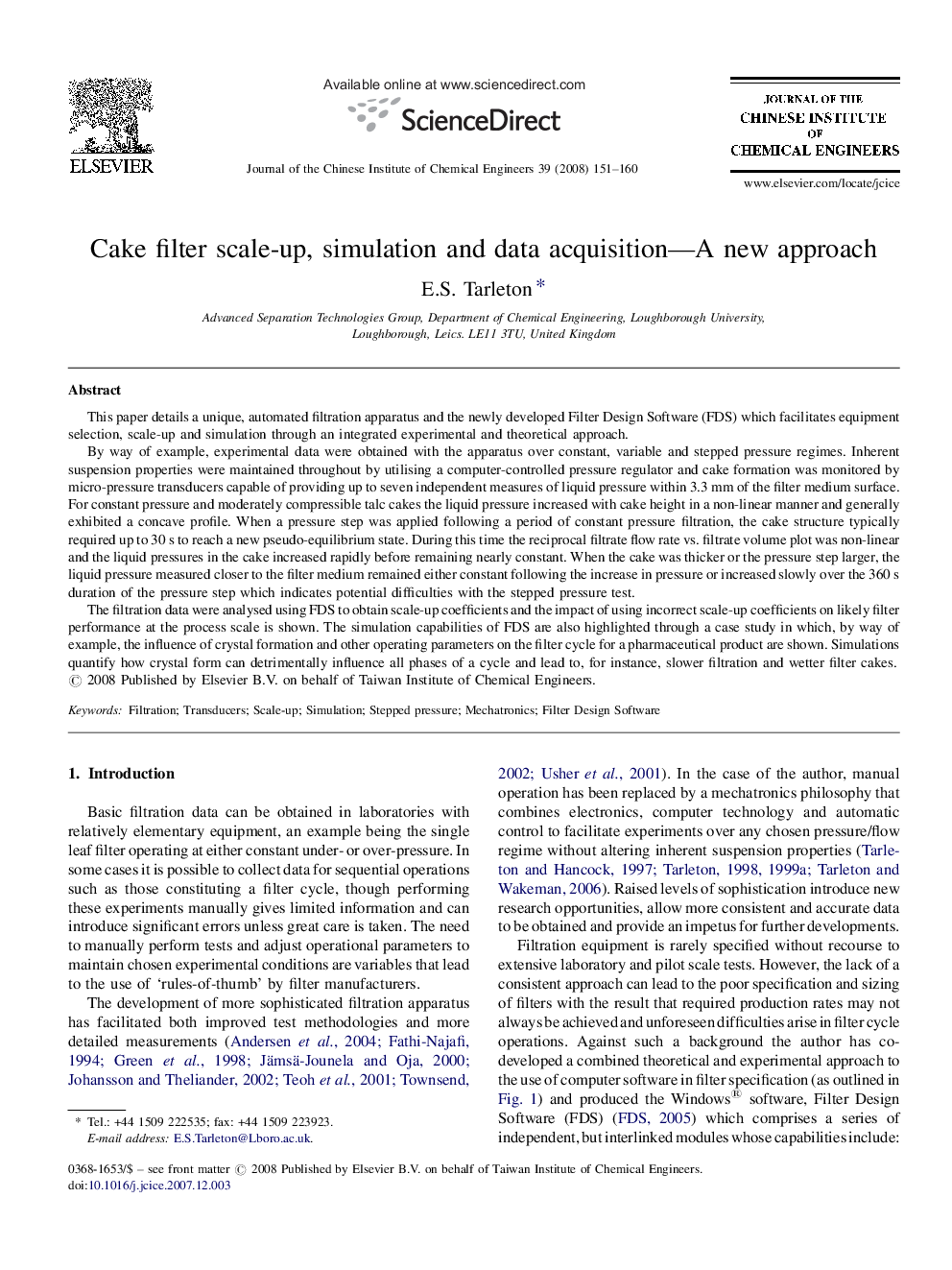| Article ID | Journal | Published Year | Pages | File Type |
|---|---|---|---|---|
| 217641 | Journal of the Chinese Institute of Chemical Engineers | 2008 | 10 Pages |
This paper details a unique, automated filtration apparatus and the newly developed Filter Design Software (FDS) which facilitates equipment selection, scale-up and simulation through an integrated experimental and theoretical approach.By way of example, experimental data were obtained with the apparatus over constant, variable and stepped pressure regimes. Inherent suspension properties were maintained throughout by utilising a computer-controlled pressure regulator and cake formation was monitored by micro-pressure transducers capable of providing up to seven independent measures of liquid pressure within 3.3 mm of the filter medium surface. For constant pressure and moderately compressible talc cakes the liquid pressure increased with cake height in a non-linear manner and generally exhibited a concave profile. When a pressure step was applied following a period of constant pressure filtration, the cake structure typically required up to 30 s to reach a new pseudo-equilibrium state. During this time the reciprocal filtrate flow rate vs. filtrate volume plot was non-linear and the liquid pressures in the cake increased rapidly before remaining nearly constant. When the cake was thicker or the pressure step larger, the liquid pressure measured closer to the filter medium remained either constant following the increase in pressure or increased slowly over the 360 s duration of the pressure step which indicates potential difficulties with the stepped pressure test.The filtration data were analysed using FDS to obtain scale-up coefficients and the impact of using incorrect scale-up coefficients on likely filter performance at the process scale is shown. The simulation capabilities of FDS are also highlighted through a case study in which, by way of example, the influence of crystal formation and other operating parameters on the filter cycle for a pharmaceutical product are shown. Simulations quantify how crystal form can detrimentally influence all phases of a cycle and lead to, for instance, slower filtration and wetter filter cakes.
